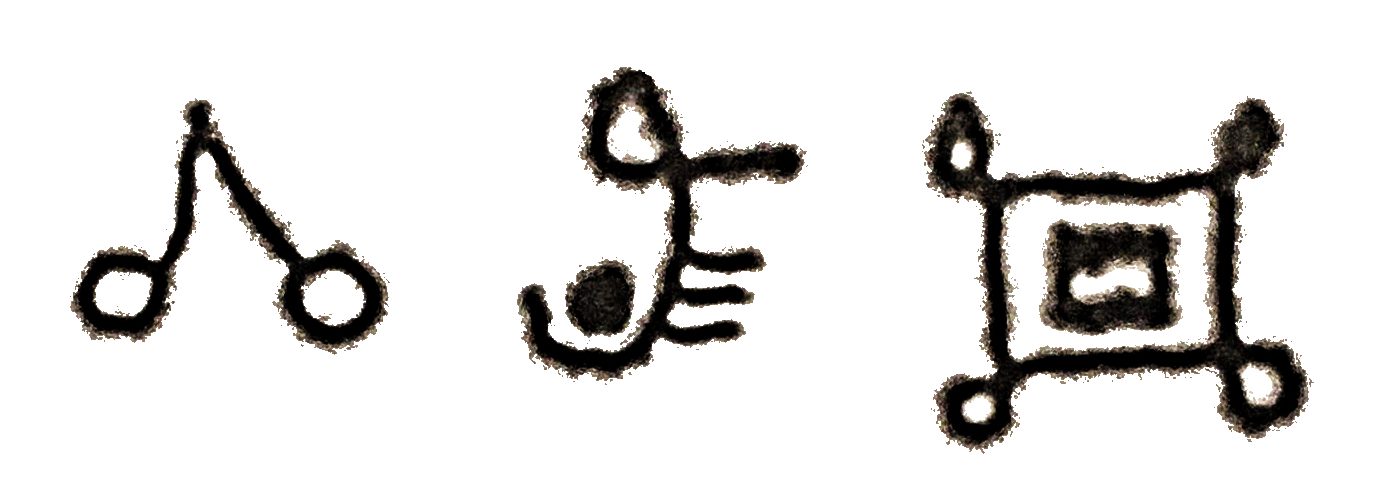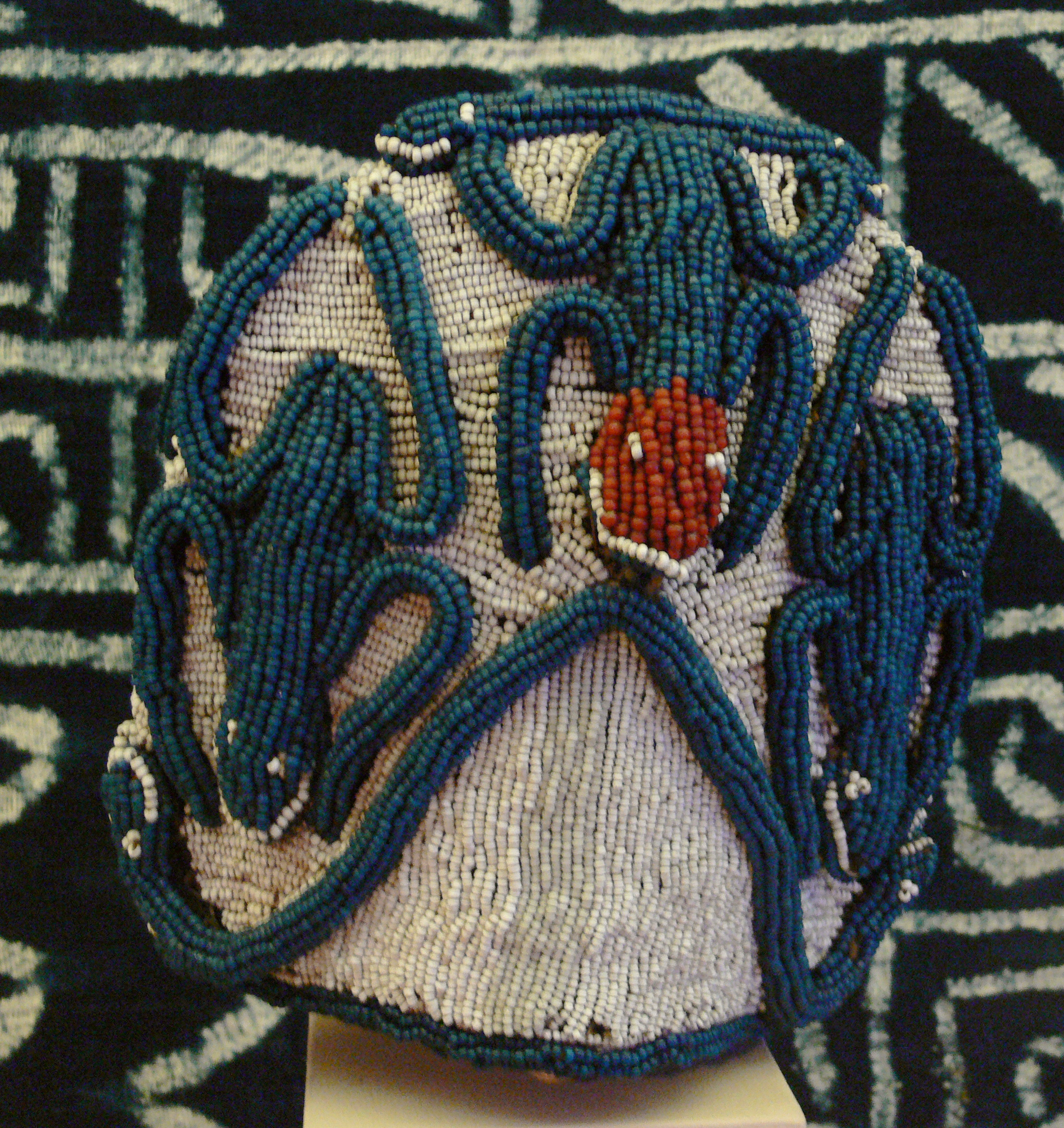|
Ibrahim Njoya
King Ibrahim Mbouombouo Njoya ( Bamum: , ''Iparəim Nʃuɔiya'', formerly spelled in Bamum as , and Germanicized as ''Njoja'') in Yaoundé, was seventeenth in a long dynasty of kings that ruled over Bamum and its people in western Cameroon dating back to the fourteenth century. He succeeded his father Nsangu, and ruled from 1886 or 1887 until his death in 1933, when he was succeeded by his son, Seidou Njimoluh Njoya. He ruled from the ancient walled city of Fumban. Person and life Njoya was born circa 1876. His father passed away when he was just three years old, and his mother ruled the kingdom until he could ascend to the throne at the age of 11. Colonel Gorges of the British Army, who met Njoya in 1914, described him thus as "a fine upstanding man."Gorges (1930) He practised polygamy — Gorges reported that he had 600 wives and 149 children by 1915; it is thought that he had 177 children in all. Under the influence of a German missionary, Njoya converted to Christianity ... [...More Info...] [...Related Items...] OR: [Wikipedia] [Google] [Baidu] |
Bamum
Bamum, also spelled Bamoum, Bamun, or Bamoun, may refer to: *The Bamum people *The Bamum kingdom *The Bamum language *The Bamum script ** Bamum (Unicode block) * Bamum Scripts and Archives Project {{Disambig Language and nationality disambiguation pages ... [...More Info...] [...Related Items...] OR: [Wikipedia] [Google] [Baidu] |
Islam
Islam (; ar, ۘالِإسلَام, , ) is an Abrahamic religions, Abrahamic Monotheism#Islam, monotheistic religion centred primarily around the Quran, a religious text considered by Muslims to be the direct word of God in Islam, God (or ''Allah'') as it was revealed to Muhammad, the Muhammad in Islam, main and final Islamic prophet.Peters, F. E. 2009. "Allāh." In , edited by J. L. Esposito. Oxford: Oxford University Press. . (See alsoquick reference) "[T]he Muslims' understanding of Allāh is based...on the Qurʿān's public witness. Allāh is Unique, the Creator, Sovereign, and Judge of mankind. It is Allāh who directs the universe through his direct action on nature and who has guided human history through his prophets, Abraham, with whom he made his covenant, Moses/Moosa, Jesus/Eesa, and Muḥammad, through all of whom he founded his chosen communities, the 'Peoples of the Book.'" It is the Major religious groups, world's second-largest religion behind Christianity, w ... [...More Info...] [...Related Items...] OR: [Wikipedia] [Google] [Baidu] |
Ethnological Museum Of Berlin
The Ethnological Museum of Berlin (german: Ethnologisches Museum Berlin) is one of the Berlin State Museums (german: Staatliche Museen zu Berlin), the de facto national collection of the Federal Republic of Germany. It is presently located in the Humboldt Forum in Mitte, along with the Museum of Asian Art (german: Museum für Asiatische Kunst). The museum holds more than 500,000 objects and is one of the largest and most important collections of works of art and culture from outside Europe in the world.Viola König (Hrsg.): ''Ethnologisches Museum Berlin''. Prestel, München 2003. Seite 8. Its highlights include important objects from the Sepik River, Hawaii, the Kingdom of Benin, Cameroon, Congo, Tanzania, China, the Pacific Coast of North America, Mesoamerica, the Andes, as well as one of the first ethnomusicology collections of sound recordings (the Berliner Phonogramm-Archiv). The Ethnological Museum was founded in 1873 and opened its doors in 1886 as the Royal M ... [...More Info...] [...Related Items...] OR: [Wikipedia] [Google] [Baidu] |
Felix Von Luschan
Felix Ritter von Luschan (11 August 1854 – 7 February 1924) was an Austrian doctor, anthropologist, explorer, archaeologist and ethnographer. Life Luschan was born the son of a lawyer in Hollabrunn, Lower Austria, and attended the Akademisches Gymnasium in Vienna. After leaving school he studied medicine at the University of Vienna and anthropology in Paris, with an emphasis on craniometry. After he gained his doctorate in 1878, he was an army doctor in Austro-Hungarian occupied Bosnia and, together with the British archaeologist Arthur Evans, travelled through Dalmatia, Montenegro and Albania. From 1880 he worked as a medical assistant at the Vienna General Hospital and a lecturer (''Privatdozent'') at the University of Vienna in 1882. In 1885 he married Emma von Hochstetter, daughter of the German geologist Ferdinand von Hochstetter, a close friend of his father. On 1 January 1886 Luschan took up a position as an assistant to Director Adolf Bastian at the ''Königliches Mu ... [...More Info...] [...Related Items...] OR: [Wikipedia] [Google] [Baidu] |
Buea
Buea is the capital of the Southwest Region of Cameroon. The city is located in Fako Division, on the eastern slopes of Mount Cameroon, and has a population of 300,000 (at the 2013 Census). It has two Government Hotels, the Mountain Hotel and Parliamentarian Flats Hotel located around The Government Residential Area. The self-declared state of Ambazonia claims the city as its capital. History Buea, originally "bue", was founded by a hunter who came from the Bomboko area. Coming from the Bomboko side of the mountain, he named the new-found land in amazement as "a Bue", meaning literally a "son of bué". A prominent King of the tikar clashes with German troops during invasion. Resistance remain popular folklore; currently ruled by the Endeleys. Tea growing is an important local industry, especially in Tole. Buea was the colonial capital of German Kamerun from 1901 to 1919, the capital of the Southern Cameroons from 1949 until 1961 and the capital of West Cameroon until 1972, ... [...More Info...] [...Related Items...] OR: [Wikipedia] [Google] [Baidu] |
Wilhelm II, German Emperor
Wilhelm II (Friedrich Wilhelm Viktor Albert; 27 January 18594 June 1941) was the last German Emperor (german: Kaiser) and King of Prussia, reigning from 15 June 1888 until his abdication on 9 November 1918. Despite strengthening the German Empire's position as a great power by building a powerful navy, his tactless public statements and erratic foreign policy greatly antagonized the international community and are considered by many to be one of the underlying causes of World War I. When the German war effort collapsed after a series of crushing defeats on the Western Front in 1918, he was forced to abdicate, thereby marking the end of the German Empire and the House of Hohenzollern's 300-year reign in Prussia and 500-year reign in Brandenburg. Wilhelm II was the son of Prince Frederick William of Prussia and Victoria, German Empress Consort. His father was the son of Wilhelm I, German Emperor, and his mother was the eldest daughter of Queen Victoria of the United Kingdo ... [...More Info...] [...Related Items...] OR: [Wikipedia] [Google] [Baidu] |
German Cameroon
Kamerun was an African colony of the German Empire from 1884 to 1916 in the region of today's Republic of Cameroon. Kamerun also included northern parts of Gabon and the Congo with western parts of the Central African Republic, southwestern parts of Chad and far eastern parts of Nigeria. History Years preceding colonization (1868–1883) The first German trading post in the Duala area on the Kamerun River delta was established in 1868 by the Hamburg trading company . The firm's primary agent in Gabon, Johannes Thormählen, expanded activities to the Kamerun River delta. In 1874, together with the Woermann agent in Liberia, Wilhelm Jantzen, the two merchants founded their own company, Jantzen & Thormählen there. Both of these West Africa houses expanded into shipping with their own sailing ships and steamers and inaugurated scheduled passenger and freight service between Hamburg and Duala. These companies and others obtained extensive acreage from local chiefs and b ... [...More Info...] [...Related Items...] OR: [Wikipedia] [Google] [Baidu] |
Foumban
Foumban or Fumban is a city in Cameroon, lying north east of Bafoussam. It has a population of 83,522 (at the 2005 Census). It is a major town for the Bamoun people and is home to a museum of traditional arts and culture. Foumban is known for its political significance in the formation of Cameroon's history and its cultural, tourism and economic potential. There is also a market and a craft centre, while Foumban Royal Palace contains a museum with information on Ibrahim Njoya who invented a new religion, Bamum script, and the artificial language Shümom. History Foumban is the headquarters of the Noun Division of the Western province. It was the seat of the Bamoun Dynasty. The Bamoun Dynasty was founded in the 1394 by Mfon Nshare Yen. Mfon Nshare became the first Mfon (what is today called Sultan) and was the founding father of Foumban, which became the capital city of the Bamoun Dynasty. This was as a result of the many wars against neighboring kingdoms between 1394 ... [...More Info...] [...Related Items...] OR: [Wikipedia] [Google] [Baidu] |
Rudolf Duala Manga Bell
Rudolf Duala Manga Bell (1873 – 8 August 1914) was a Duala king and resistance leader in the German colony of Kamerun (Cameroon). After being educated in both Kamerun and Europe, he succeeded his father Manga Ndumbe Bell on 2 September 1908. Bell styled himself after European rulers and at first generally supported the colonial German authorities. He was quite wealthy and educated, although his father left him a substantial debt. In 1910 the German Reichstag developed a plan to relocate the Duala people living along the river, to be moved inland to allow for wholly European riverside settlements. Manga Bell became the leader of pan-Duala resistance to the policy. He and the other chiefs at first pressured the administration through letters, petitions, and legal arguments, but these were ignored or rebutted. Manga Bell turned to other European governments for aid, and he sent representatives to the leaders of other Cameroonian peoples to suggest the overthrow of the German ... [...More Info...] [...Related Items...] OR: [Wikipedia] [Google] [Baidu] |
German Colonialism
The German colonial empire (german: Deutsches Kolonialreich) constituted the overseas colonies, dependencies and territories of the German Empire. Unified in the early 1870s, the chancellor of this time period was Otto von Bismarck. Short-lived attempts at colonization by individual German states had occurred in preceding centuries, but Bismarck resisted pressure to construct a colonial empire until the Scramble for Africa in 1884. Claiming much of the left-over uncolonized areas of Africa, Germany built the third-largest colonial empire at the time, after the British and French. The German Colonial Empire encompassed parts of several African countries, including parts of present-day Burundi, Rwanda, Tanzania, Namibia, Cameroon, Gabon, Congo, Central African Republic, Chad, Nigeria, Togo, Ghana, as well as northeastern New Guinea, Samoa and numerous Micronesian islands. Including mainland Germany, the empire had a total land area of 3,503,352 square kilometers and pop ... [...More Info...] [...Related Items...] OR: [Wikipedia] [Google] [Baidu] |
Nso People
The Nso people are from the Bamenda grass fields Northwest Region of Cameroon. Their traditional language is Lamnso (language of Nso) and their capital is Kumbo – where the Palace of the Fon is found. Summary History The Nso’ people migrated from Tikari in the Adamawa Region of Cameroon when there was a bloody succession after the death of Chief Tinki in 1387. The enthronement of Mveing as successor of Tinki sent all rivals to the throne away from Kimi. Ngonnso’, the founder of the Nso’ dynasty, left Kimi with a few followers together with her brothers Nchare Yen and Mbombam and their respective followers. After parting company with her brothers, Ngonnso’ and her followers first settled in Mbo’nso’, then later to Ndzennso’, Kovifem, Taavisa (for security), back to Koovifem, then to Kimbo (Kumbo). The tribe got its name from Ngonnso’, and is one of the largest tribes of Cameroon. Government Pre-colonial period The Fon is the traditional ruler. He is both ... [...More Info...] [...Related Items...] OR: [Wikipedia] [Google] [Baidu] |

.jpg)




